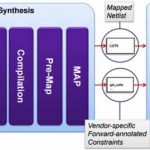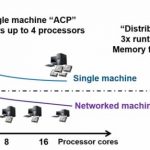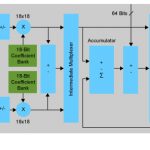Synopsys made significant announcements during the recent TSMC OIP Ecosystem Forum, showcasing a range of cutting-edge solutions designed to address the growing complexities in semiconductor design. With a strong emphasis on enabling next-generation chip architectures, Synopsys introduced both new technologies and … Read More
Tag: quality of results
Breakthrough Gains in RTL Productivity and Quality of Results with Cadence Joules RTL Design Studio
Register Transfer Level (RTL) is a crucial and valuable concept in digital hardware design. Over the years, it has played a fundamental role in enabling design of complex digital chips. By abstracting away implementation details and providing a clear description of digital behavior, RTL has contributed significantly to the… Read More
One FPGA synthesis flow for different IP types
Both Altera and Xilinx are innovative companies with robust ecosystems, right? It would be a terrible shame if you located the perfect FPGA IP block for a design, but couldn’t use it because it was in the “wrong” format for your preferred FPGA. What if there were a way around that?
There is a compelling argument to use each FPGA vendor’s… Read More
Why FPGA synthesis with Synplify is now faster
The headline of the latest Synopsys press release drops quite a tease: the newest release of Synplify delivers up to 3x faster runtime performance in FPGA synthesis. In our briefing for this post, we uncovered the surprising reason why – and it’s not found in their press release.… Read More
Understanding QoR in FPGA synthesis
We’ve all heard this claim: “Our FPGA synthesis tool produces better quality of results (QoR).” If you’re just hoping for a tool to do that automagically, you’re probably doing it wrong. Getting better QoR depends on understanding what an FPGA synthesis tool is capable of, and how to leverage what it tells you.… Read More
The fixed and the finite: QoR in FPGAs
There is an intriguingly amorphous term in FPGA design circles lately: Quality of Results, or QoR. Fitting a design in an FPGA is just the start – is a design optimal in real estate, throughput, power consumption, and IP reuse? Paradoxically, as FPGAs get bigger and take on bigger signal processing problems, QoR has become a larger… Read More







